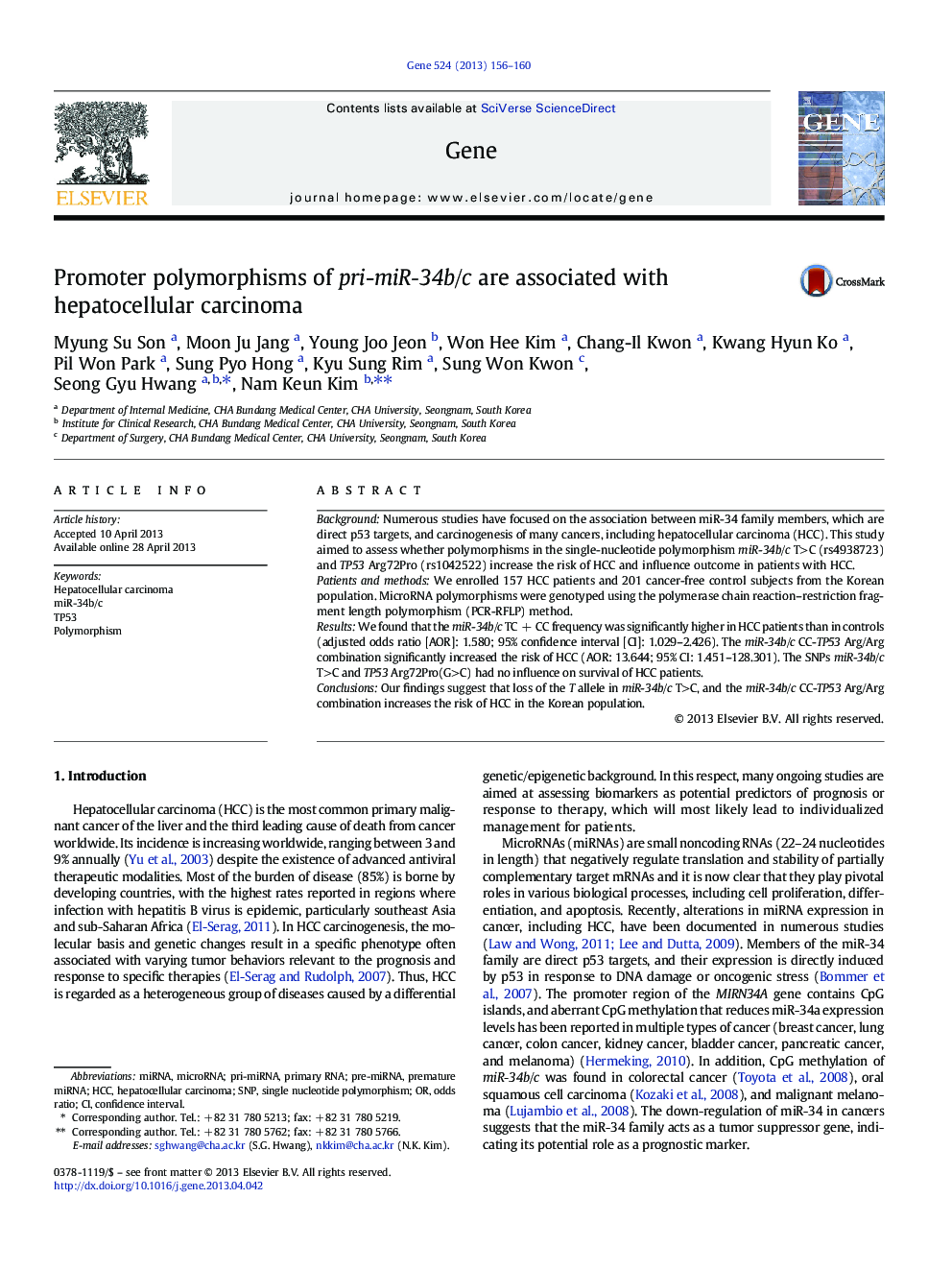| Article ID | Journal | Published Year | Pages | File Type |
|---|---|---|---|---|
| 2817127 | Gene | 2013 | 5 Pages |
•We studied the association of pri-miR-34b/c and TP53 polymorphisms with HCC.•We could find the relation between the pri-miR-34b/c(T>C) polymorphisms and HCC risk.•The pri-miR-34b/c(T>C) polymorphisms may contribute to development of HCC.•However, both of the polymorphisms had no influence for survival of HCC patients.
BackgroundNumerous studies have focused on the association between miR-34 family members, which are direct p53 targets, and carcinogenesis of many cancers, including hepatocellular carcinoma (HCC). This study aimed to assess whether polymorphisms in the single-nucleotide polymorphism miR-34b/c T>C (rs4938723) and TP53 Arg72Pro (rs1042522) increase the risk of HCC and influence outcome in patients with HCC.Patients and methodsWe enrolled 157 HCC patients and 201 cancer-free control subjects from the Korean population. MicroRNA polymorphisms were genotyped using the polymerase chain reaction–restriction fragment length polymorphism (PCR-RFLP) method.ResultsWe found that the miR-34b/c TC + CC frequency was significantly higher in HCC patients than in controls (adjusted odds ratio [AOR]: 1.580; 95% confidence interval [CI]: 1.029–2.426). The miR-34b/c CC-TP53 Arg/Arg combination significantly increased the risk of HCC (AOR: 13.644; 95% CI: 1.451–128.301). The SNPs miR-34b/c T>C and TP53 Arg72Pro(G>C) had no influence on survival of HCC patients.ConclusionsOur findings suggest that loss of the T allele in miR-34b/c T>C, and the miR-34b/c CC-TP53 Arg/Arg combination increases the risk of HCC in the Korean population.
Graphical abstractFigure optionsDownload full-size imageDownload high-quality image (46 K)Download as PowerPoint slide
